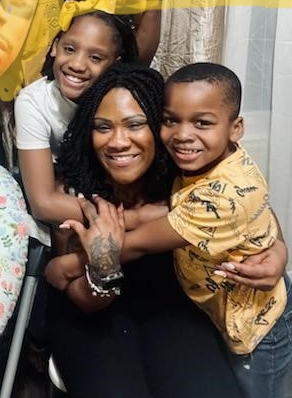
You may not know if you have what it takes to be a Wisconsin foster parent now, but rest assured, we can help you explore. Our staff will gently guide you through the important details of becoming a CCR foster parent. With the CCR staff standing behind you and the necessary education and support, you may quickly discover that you have precisely what it takes and will be a successful foster parent.
Our diverse pool of foster families includes married, single, partnered, working, self-employed, retired, renters, homeowners, parents, grandparents, and childless. Each brings something unique and special to foster parenting, and all have specific qualities that allow them to successfully care for children with trauma histories.
Learning about the types of children that come to CCR is important. All children in Wisconsin foster care have experienced trauma, and trauma shapes a young child’s developing brain. Kids will have behaviors and emotions, and that is to be expected. First-time foster parents will experience highs and lows, especially with a first placement. This is why all CCR foster parents receive 24/7 support, including weekly in-home visits. We are on the journey with you and want you to feel confident and succeed in caring for children in your home.

"After being licensed with our county agency and struggling to be successful, we transferred to CCR. The level of support and education we get at CCR is significant." Rebecca, Janesville, WI
Being removed from the home, often bouncing from house to house, is scary and overwhelming for any child or youth. A child accustomed to chaos, turmoil, and an unpredictable environment may find the "normal calm" of a home unnerving. New routines and rules might be complicated initially or for a while. Remembering they have lost their family, friends, school, and home in one single swoop! Can you be trusted? Will you be there tomorrow or next week? Will there be food available when they are hungry?
It will take time to develop routines and earn the child’s trust.

Our foster parents will tell you that it can take months for a child to "let you in." If and when that finally happens, some will pull away to avoid being hurt and disappointed again. Older kids may hurt you first by running away, pulling back, or refusing to let themselves be loved. Bonding and attachment may never happen; it won't be your fault. Foster parenting requires a deep reserve of patience and compassion.
It will often feel like a dance of one step forward and two steps back. Your emotions will run high, frustrations will happen, and you will question why you are a foster parent. Ask seasoned foster parents, and they will tell you it is all worth it. Like other things, you get more in return than you give.

We believe you do! Please speak with one of our professionals; many have been foster parents. Talk with current foster parents of Community Care Resources and scroll through our expansive Facebook page. It contains photos, stories, and information about CCR, families, and children. Facebook

